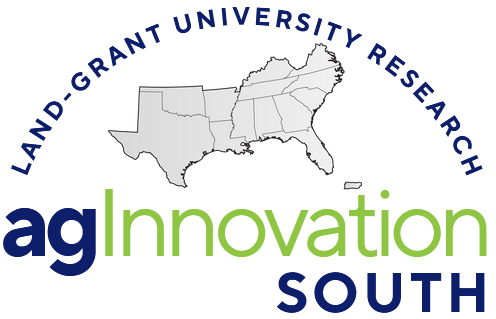
SCC13: Statisticians Group (USSES)
(Multistate Research Coordinating Committee and Information Exchange Group)
Status: Inactive/Terminating
SCC13: Statisticians Group (USSES)
Duration: 10/01/2013 to 09/30/2018
Administrative Advisor(s):
NIFA Reps:
Non-Technical Summary
Statement of Issues and Justification
As agricultural research becomes more expensive, and funds and external requirements become more restrictive, the need for Experiment Station statisticians becomes more critical for providing design, analysis and interpretation for research scientists. Additionally, the new types (eg. genomics) and volume (eg. precision agriculture) of data are forcing new development of statistical methodology, in turn creating critical needs for training of station statisticians and implementing statistical solutions for research scientists. The annual University Statisticians of Southern Experiment Stations (USSES) meeting provides an opportunity for applied statisticians associated with Experiment Stations to learn, discuss and develop new applied statistical approaches. Consulting statisticians are a critical link between basic statistical science and researchers in all agricultural disciplines. As statistical practice and methodology continue to develop, USSES is necessary to focus/train statisticians on developing solutions for the needs of agricultural scientists. Historically, two highly successful regional projects have grown from the USSES work group. S-94 was instrumental in the early development of the Statistical Analysis System (SAS) at North Carolina State University. SAS is now the premier statistical analysis program available for design, analysis and management of agricultural and related research. S-189 produced a bulletin on mixed models in 1989, one of the first promotions of mixed models for general agriculture research. Research from the USSES group has led to new and innovative methodologies that are now widely available and used in agriculture and many other areas of research.
Objectives
-
Provide a forum for the exchange of statistical and computational knowledge and information required by statisticians serving as consultants to Experiment Station scientists. This will be done through the annual meeting, by an email discussion list and by a USSES website.
-
Host Worshops for transferring statistical methodology to agricultureal research. Current topics identififed by USSES for furhter training of members and for translation to agricultural research are: Multivariate statisticcs - analysis should recognize that responses are correlated: Bayesian statistics - analysis should recognize that prior information exists: AIC model selection - use "information" instead of p-values for inference: Mixed models - a mature methodology, but recommended practicee is evolving: GxE interaction - the various methods have not been compared: Open statistics - what role should (e.g) R software play in agricultural research: Design -researchers condinue to use randomized complete blocks when more efficient alternatives exist, and sample size calculations need to become more of a science than guess work: Meta-analysis - historical studies in teh literature can be combined to produce more definitive models and better understanding of the entire system: Bioinformatics - new types of data are exploding, requireing new statistical methods: Big Data - data loggers, precision ag harvesters, satellites, etc. are producing unprecedented amounts of data that require new approaches to statistical management and analysis: Spatial data - with GPS coodrinates easily recorded with data observations,, use of spatial data needs to be further addressed.
Procedures and Activities
USSES will meet annually at a participating Experiment Station. The program will always have a workshop component for training USSES members. Additionally there will be a hands-on session where real experimental data related to the workshop will be analyzed by the group, an participants will share their statistical experience. The annual meeting provides a sprigboard for further discussion on new ideas for other regional activity and further collaborative research. Periodically USSES neets jointly with statisticaians from other regions to exchange ideas and develop new reserach and collaboration.
Expected Outcomes and Impacts
- The information from workshops at the annual meeting will increase the quality of statistical support in Experiment Stations.
- The USSES website will provide a centralized source for useful software (eg. SAS macros) and descriptions of current recommended practice for assisting agricultural reserchers (and USSES members).
- Impact on statistical methodology and options available in SAS, the most commonly used statistical package. The continuing close working relationship with SAS will insure the development of statistial software necessary for agricultural scientists to improve agricltural research by advocating use of the non-traditional methodology listed under objectives.
Projected Participation
View Appendix E: ParticipationEducational Plan
The primary users of the results and services of the project will be Experiment Station scientists, other researchers and fellow statisticians. Results will be made available through appropriate publications, presentations, the USSES website and otehr forums.
Organization/Governance
Each year USSES will select a chair and location for the next meeting. The chair will be chosen by the particpants at that meeting. The current chair, the newly elected chair, and a third member chosen by the particpants will form the program committee, tasked with developing the meeting program for the following year. At each meeting a secretary will be identified by the group to record minutes and develop the annual report. The administrator advisor will coordinate these administrative activities.